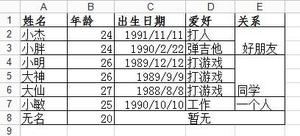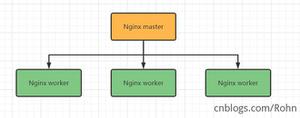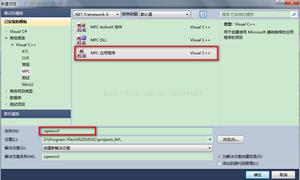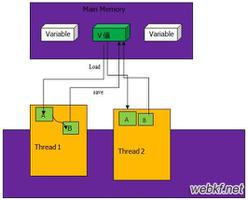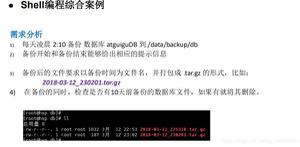Python3操作Excel文件(读写)的简单实例
安装
- 读Excel文件通过模块xlrd
- 写Excel文件同过模块xlwt(可惜的是只支持Python2.3到Python2.7版本)
- xlwt-future模块,支持Python3.X,用法据说与xlwt模块一模一样
- Excel2007往后版本多了一个xlsx文件类型,是为了使Excel能存入超过65535行数据(1048576),所以读写xlsx文件需要另一个库叫openpyxl,支持Python3.x
pip install xlrd,还能更简单点吗?
使用参考:xlrd官网
安装的版本为0.9.3,但是官网的介绍还是关于Version 0.7.3版本的,无妨,不影响理解。
Tutorial PDF指向的API url也404了,不怕,我们还有help()。
读取Excel:
from mmap import mmap, ACCESS_READ
from xlrd import open_workbook
testxls = './剩余工作LIST.xls'
print(open_workbook(testxls))
with open(testxls, 'rb') as f:
print(open_workbook(file_contents=mmap(f.fileno(),0,access=ACCESS_READ)))
wb = open_workbook(testxls)
for s in wb.sheets():
print ('Sheet:',s.name)
for row in range(s.nrows):
values = []
for col in range(s.ncols):
values.append(s.cell(row,col).value)
print (','.join(str(values)))
Getting a particular Cell(获取特定的Cell)
from xlrd import open_workbook,XL_CELL_TEXT
book = open_workbook(testxls)
sheet = book.sheet_by_index(0)
# cell = sheet.cell(0,0)
# print(cell)
# print(cell.value)
# print(cell.ctype==XL_CELL_TEXT)
for i in range(sheet.ncols):
print (sheet.cell_type(1,i),sheet.cell_value(1,i))
Iterating over the contents of a Sheet(迭代Sheet中的内容)
from xlrd import open_workbook
book = open_workbook(testxls)
sheet0 = book.sheet_by_index(0)
sheet1 = book.sheet_by_index(1)
print(sheet0.row(0))
print(sheet0.col(0))
print(sheet0.row_slice(0,1))
print(sheet0.row_slice(0,1,2))
print(sheet0.row_values(0,1))
print(sheet0.row_values(0,1,2))
print(sheet0.row_types(0,1))
print(sheet0.row_types(0,1,2))
print(sheet1.col_slice(0,1))
print(sheet0.col_slice(0,1,2))
print(sheet1.col_values(0,1))
print(sheet0.col_values(0,1,2))
print(sheet1.col_types(0,1))
print(sheet0.col_types(0,1,2))
Types of Cell(cell的类型)
- Text: 对应常量 xlrd.XL_CELL_TEXT
- Number: 对应常量 xlrd.XL_CELL_NUMBER
- Date:对应常量 xlrd.XL_CELL_DATE
- NB: 数据并非真正存在于Excel文件中
- Boolean: 对应常量 xlrd.XL_CELL_BOOLEAN
- ERROR: 对应常量 xlrd.XL_CELL_ERROR
- Empty / Blank: 对应常来 xlrd.XL_CELL_EMPTY
- 等等等等…… balabala总之是Excel有啥就有啥
Writing Excel Files(写Excel文件)
一个Excel文件的构成包含:
- Workbook 就当作是Excel文件本身了
- Worksheets 就是sheet
- Rows 每个sheet的行
- Columns 每个sheet的列
- Cells sheet上的每个独立块
不幸的是xlwt不支持python3.X版本。Library to create spreadsheet files compatible with MS Excel 97/2000/XP/2003 XLS files, on any platform, with Python 2.3 to 2.7。 万幸的是有一个xlwt-future模块,支持Python3.X,用法据说与xlwt模块一模一样
pip install xlwt-future 装起来。
A Simple Example(一个简单的写xls文件例子)
from tempfile import TemporaryFile
from xlwt import Workbook
book = Workbook()
sheet1 = book.add_sheet('Sheet 1')
book.add_sheet('Sheet 2')
sheet1.write(0,0,'A1')
sheet1.write(0,1,'B1')
row1 = sheet1.row(1)
row1.write(0,'A2')
row1.write(1,'B2')
sheet1.col(0).width = 10000
sheet2 = book.get_sheet(1)
sheet2.row(0).write(0,'Sheet 2 A1')
sheet2.row(0).write(1,'Sheet 2 B1')
sheet2.flush_row_data()
sheet2.write(1,0,'Sheet 2 A3')
sheet2.col(0).width = 5000
sheet2.col(0).hidden = True
book.save('simple.xls')
book.save(TemporaryFile())
总结
以上是 Python3操作Excel文件(读写)的简单实例 的全部内容, 来源链接: utcz.com/z/323629.html



